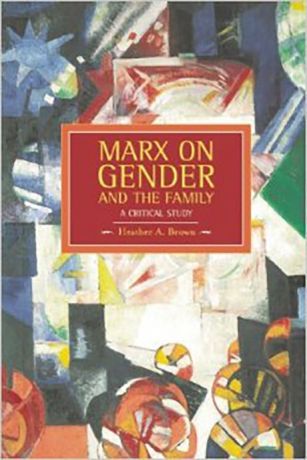Arts
You are here
Book Review: Marx On Gender and the Family

March 6, 2015
Feminists have often had a strained relationship with Marxism, sometimes accusing Marx and Marxists of economic determinism and even outright sexism. This has led to some feminists rejecting Marxist ideas outright.
But is it true that Marxism has nothing to contribute to the struggle against gender oppression? In her book, Marx On Gender and the Family, Heather Brown shows that, while Marx did not fully develop his analysis of women’s oppression in his writings, his ideas are still both compatible with those of feminism and useful in understanding women’s oppression.
Brown thoroughly reviews all of Marx’s work on gender and the family, including some writings that had not previously been published, such as his notes on anthropology and ethnology. She argues that previous analyses of Marx’s work tended to judge his ideas on gender unfairly for two main reasons; critics did not look at all of his work, therefore missing the fact that his ideas developed and changed over time, and they conflated his arguments with those of Engels, whom Brown judges to be a bit of an economic determinist.
For example, Brown feels that while Engels idealized early societies, arguing that because they had no private property, there could not be oppression of women, Marx’s view was more nuanced. Marx saw the development of gender oppression as dialectical; even in communal societies, seeds of class and gender antagonisms were present, and had begun to develop. It is not surprising that Marx’s understanding of women’s role as agents acting to counter their own oppression also developed as he observed their participation in struggles such as organizing and defending the Paris Commune of 1871, where he noted that they were equal participants alongside men.
One of the drawbacks to Brown’s book is that because it is a scholarly work, it is not written in a particularly accessible style. However, it is still an important book for revolutionary socialists. Feminists will appreciate the fact that is an honest appraisal of Marx’s writing on gender. While Brown is not scared to point out Marx’s occasional sexist or moralistic remarks, she makes it very clear that this is “not … a fatal flaw in his work”. Marx’s method and his theory of society give us a way to integrate feminist insights into Marxism, which Brown feels will allow us to establish a unitary theory of gender and class that does not privilege one over the other. By understanding how gender oppression is socially constructed and not ahistorical, we can better understand how best to fight it in the here and now, and better equip ourselves to build a society free of both oppression and exploitation.
Section:









